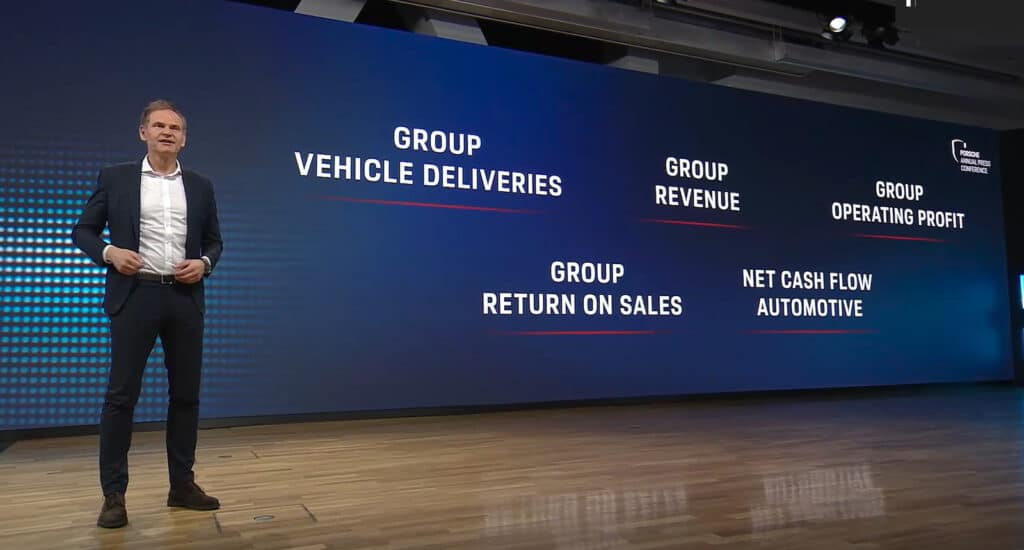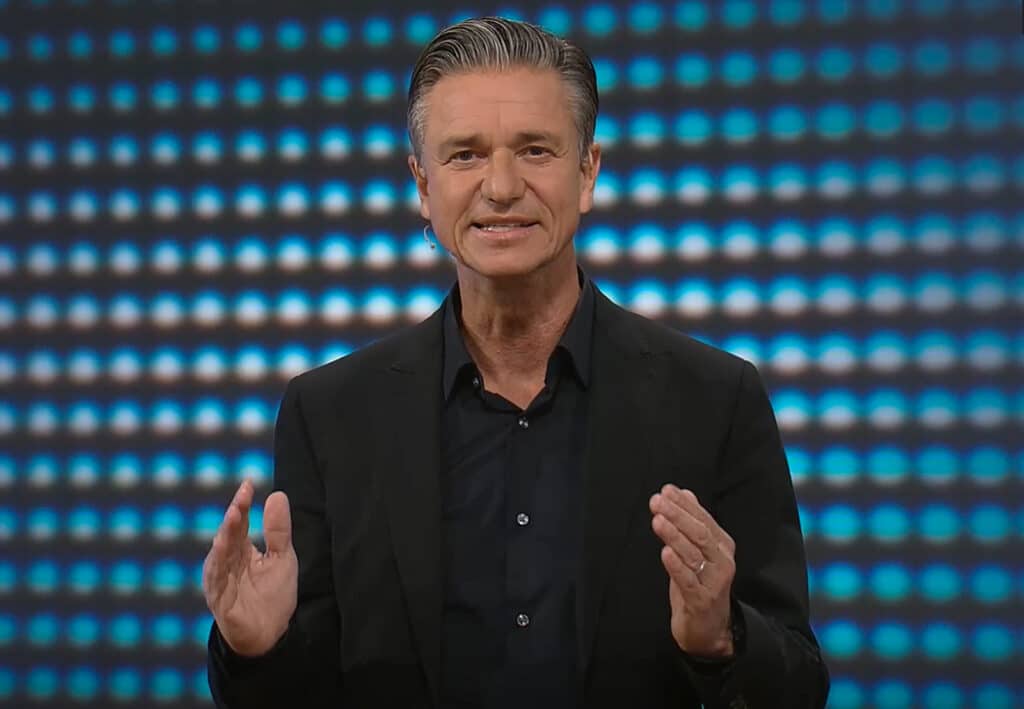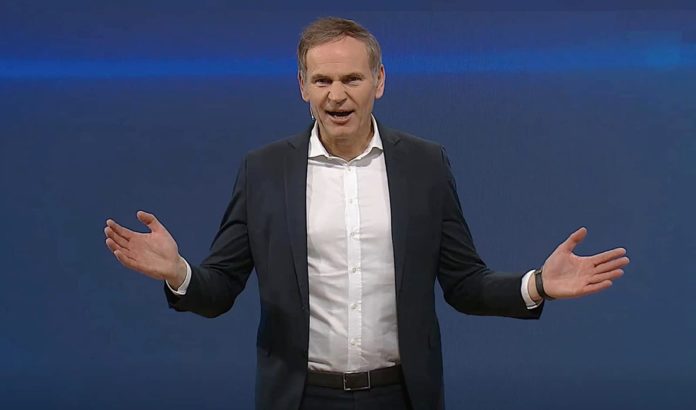Porsche has ample reason to beat its drum in 2023. This year marks 75 years of Porsche sports cars and 60 years of the 911. In June, the company is returning to the 24 Hours of Le Mans for the 100th anniversary of the event with the newly developed Porsche 963.
Porsche AG held its first investor conference call of the year early Monday morning and detailed its electrification strategy through 2030. The company’s executives also set a bold goal for profitability following the brand’s successful IPO last fall.
New EVs and a new flagship SUV
Porsche executives also announced plans to continue with the company’s electrification strategy. The all-electric Macan is still under development and will be available to customers in 2024. The all-electric 718 is planned for “the middle of the decade” according to Porsche, with plans to phase out the gas-powered 718 and make it an all-electric car.
Those models will be followed by the all-electric Cayenne later in this decade. The fourth generation of the SUV will underline Porsche’s goal of delivering more than 80% of its new vehicles as all-electric models by 2030. The company previously stated that by 2030, only the venerable 911 will be powered by a gasoline-fueled engine.
During 2023, the Cayenne is already set to undergo one of the most comprehensive upgrades in the history of Porsche. The updates to the third-generation model include three plug-in hybrids with greater ranges. Thanks to a new chassis, there will also be an even wider breadth of abilities, balancing the on-road performance for which Porsche is famous, long-distance comfort and off-road capability.

“We are thereby underlining and strengthening our sporty luxury positioning,” said Oliver Blume, chairman of the Executive Board. “We are observing growing profit pools in this segment, in particular in China and the U.S.”
Porsche is also planning a new electric SUV positioned above the Cayenne. This new vehicle concept is designed to offer strong performance and automated driving functions, along with a completely new driver and passenger experience. The new SUV will be based on the SSP Sport platform developed by Porsche for the entire VW/Porsche/Audi family. The first application of SSP Sport will be a Volkswagen offering, currently code-named Trinity, in 2026.
Road to 20 demonstrates focus on the bottom line
Since Porsche’s IPO last September, profitability goals have become even more critical to the company’s future. For 2023, the first full year as a publicly traded entity, the Stuttgart-based sports car manufacturer articulated an ambitious “Road to 20” program to reach 20% return on sales in the long term.

Porsche Group sales revenue in 2022 amounted to €37.6 billion, growing by 13.6% from €33.1 billion in 2021. Operating profit for the year came in at €6.8 billion, exceeding the previous year’s figure by €1.5 billion for an increase of 27.4%. Porsche Group operating return on sales rose from 16% to 18%.
“In difficult conditions, we achieved the strongest result in the history of Porsche, by some distance,” Blume said. “We were also able to offer our customers exciting new products yet again in 2022. This is the result of a great team performance.”
“Should the economically challenging conditions not further intensify significantly, we expect a Group operating return on sales for the 2023 financial year in the range of 17(%) to 19%,” said Lutz Meschke, deputy chairman and member of the Executive Board for Finance and IT. “We’re going to take a fresh look at everything, from our product range and pricing to our cost structure. We want to increase the quality of our contribution margins and make our products even more attractive.”
Porsche has been successful through recent challenges. The company was able to deliver 309,884 vehicles to customers in 2022, despite global supply chain disruptions, the effects of the war in Ukraine, and the lingering challenges of COVID. The number of deliveries represents an increase of 2.6% compared to 2021.
“Our success factors are improved price positioning, the strong product mix, the increase in vehicle sales, exchange rate effects, and our strict cost discipline,” Meschke said.

